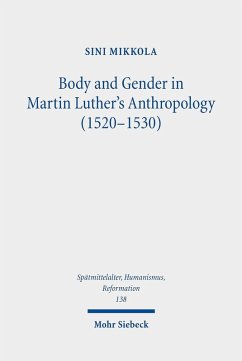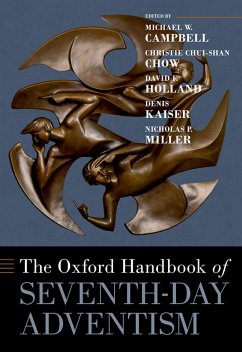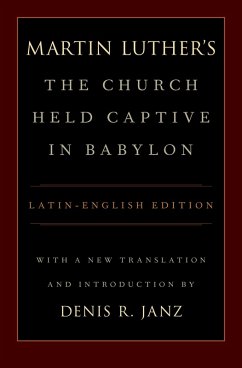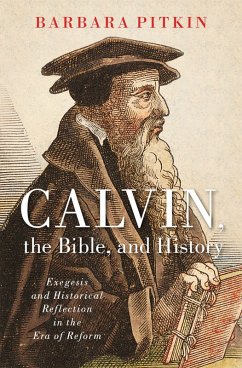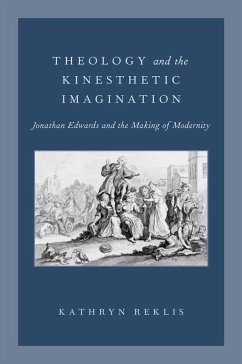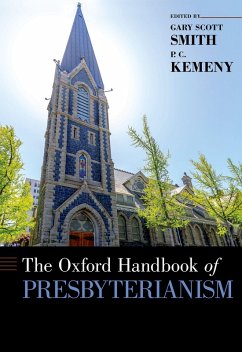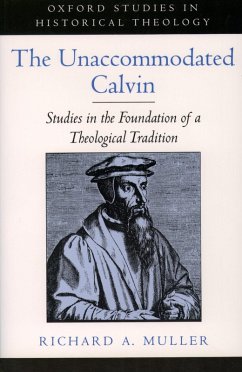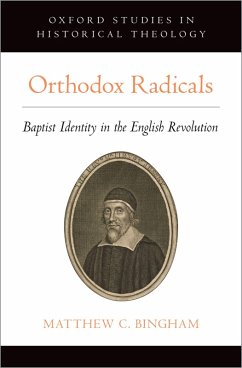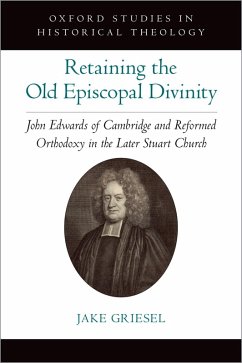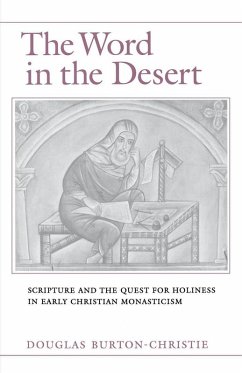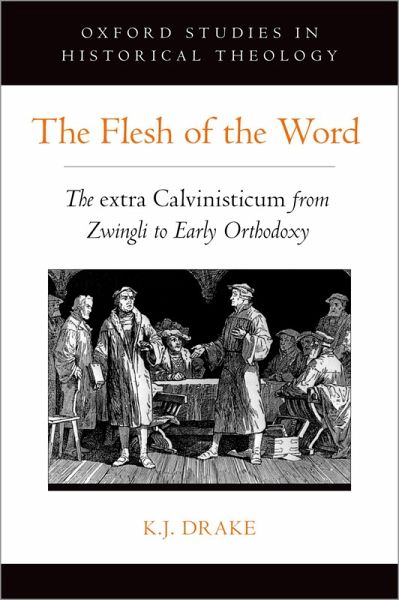
The Flesh of the Word (eBook, PDF)
The extra Calvinisticum from Zwingli to Early Orthodoxy
Versandkostenfrei!
Sofort per Download lieferbar
39,95 €
inkl. MwSt.
Weitere Ausgaben:

PAYBACK Punkte
20 °P sammeln!
The extra Calvinisticum, the doctrine that the eternal Son maintains his existence beyond the flesh both during his earthly ministry and perpetually, divided the Lutheran and Reformed traditions during the Reformation. This book explores the emergence and development of the extra Calvinisticum in the Reformed tradition by tracing its first exposition from Ulrich Zwingli to early Reformed orthodoxy. Rather than being an ancillary issue, the questions surrounding the extra Calvinisticum were a determinative factor in the differentiation of Magisterial Protestantism into rival confessions. Reform...
The extra Calvinisticum, the doctrine that the eternal Son maintains his existence beyond the flesh both during his earthly ministry and perpetually, divided the Lutheran and Reformed traditions during the Reformation. This book explores the emergence and development of the extra Calvinisticum in the Reformed tradition by tracing its first exposition from Ulrich Zwingli to early Reformed orthodoxy. Rather than being an ancillary issue, the questions surrounding the extra Calvinisticum were a determinative factor in the differentiation of Magisterial Protestantism into rival confessions. Reformed theologians maintained this doctrine in order to preserve the integrity of both Christ's divine and human natures as the mediator between God and humanity. This rationale remained consistent across this period with increasing elaboration and sophistication to meet the challenges leveled against the doctrine in Lutheran polemics. The study begins with Zwingli's early use of the extra Calvinisticum in the Eucharistic controversy with Martin Luther and especially as the alternative to Luther's doctrine of the ubiquity of Christ's human body. Over time, Reformed theologians, such as Peter Martyr Vermigli and Antione de Chandieu, articulated the extra Calvinisticum with increasing rigor by incorporating conciliar christology, the church fathers, and scholastic methodology to address the polemical needs of engagement with Lutheranism. The Flesh of the Word illustrates the development of christological doctrine by Reformed theologians offering a coherent historical narrative of Reformed christology from its emergence into the period of confessionalization. The extra Calvinisticum was interconnected to broader concerns affecting concepts of the union of Christ's natures, the communication of attributes, and the understanding of heaven.
Dieser Download kann aus rechtlichen Gründen nur mit Rechnungsadresse in A, B, BG, CY, CZ, D, DK, EW, E, FIN, F, GR, HR, H, IRL, I, LT, L, LR, M, NL, PL, P, R, S, SLO, SK ausgeliefert werden.




